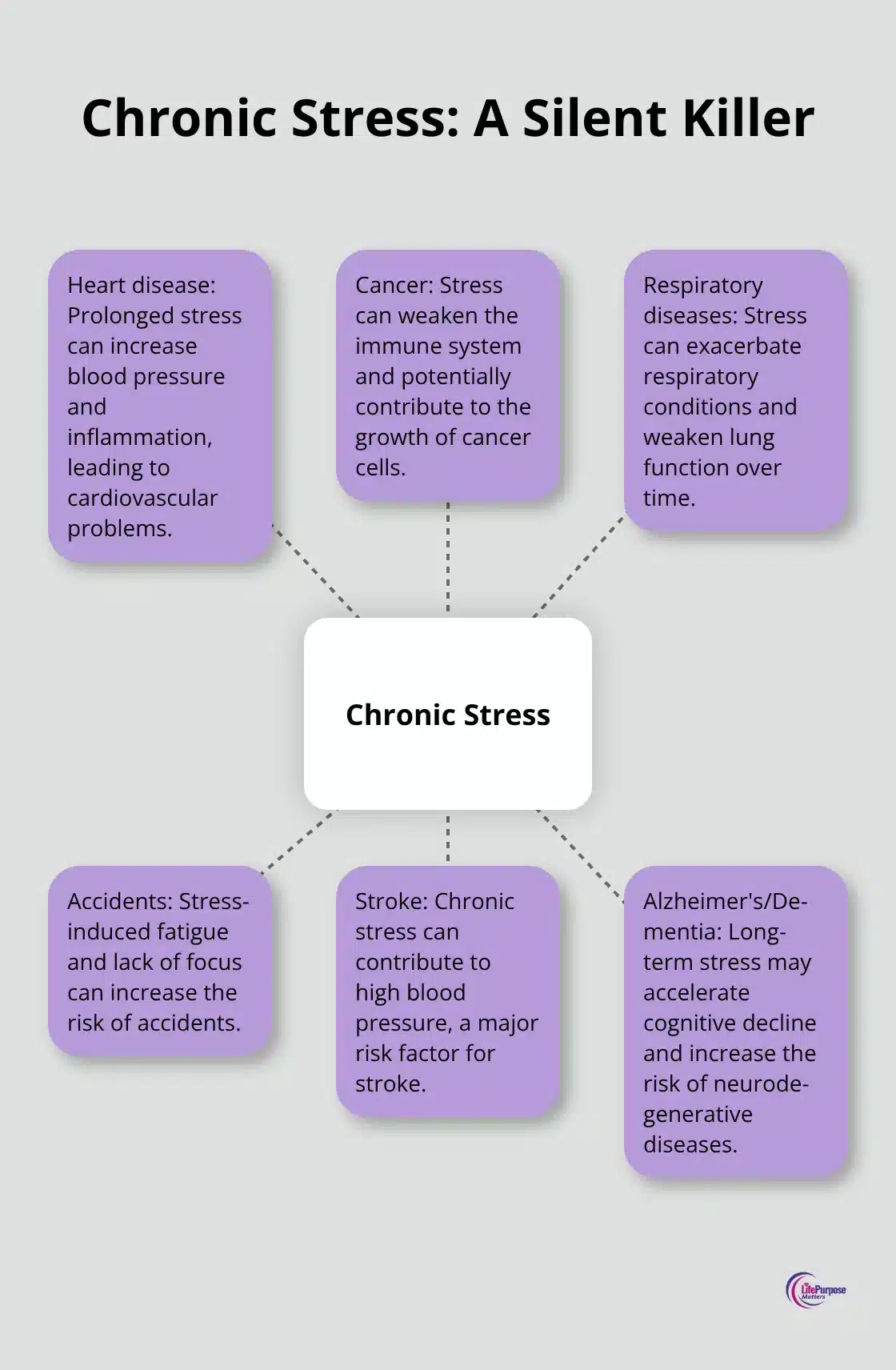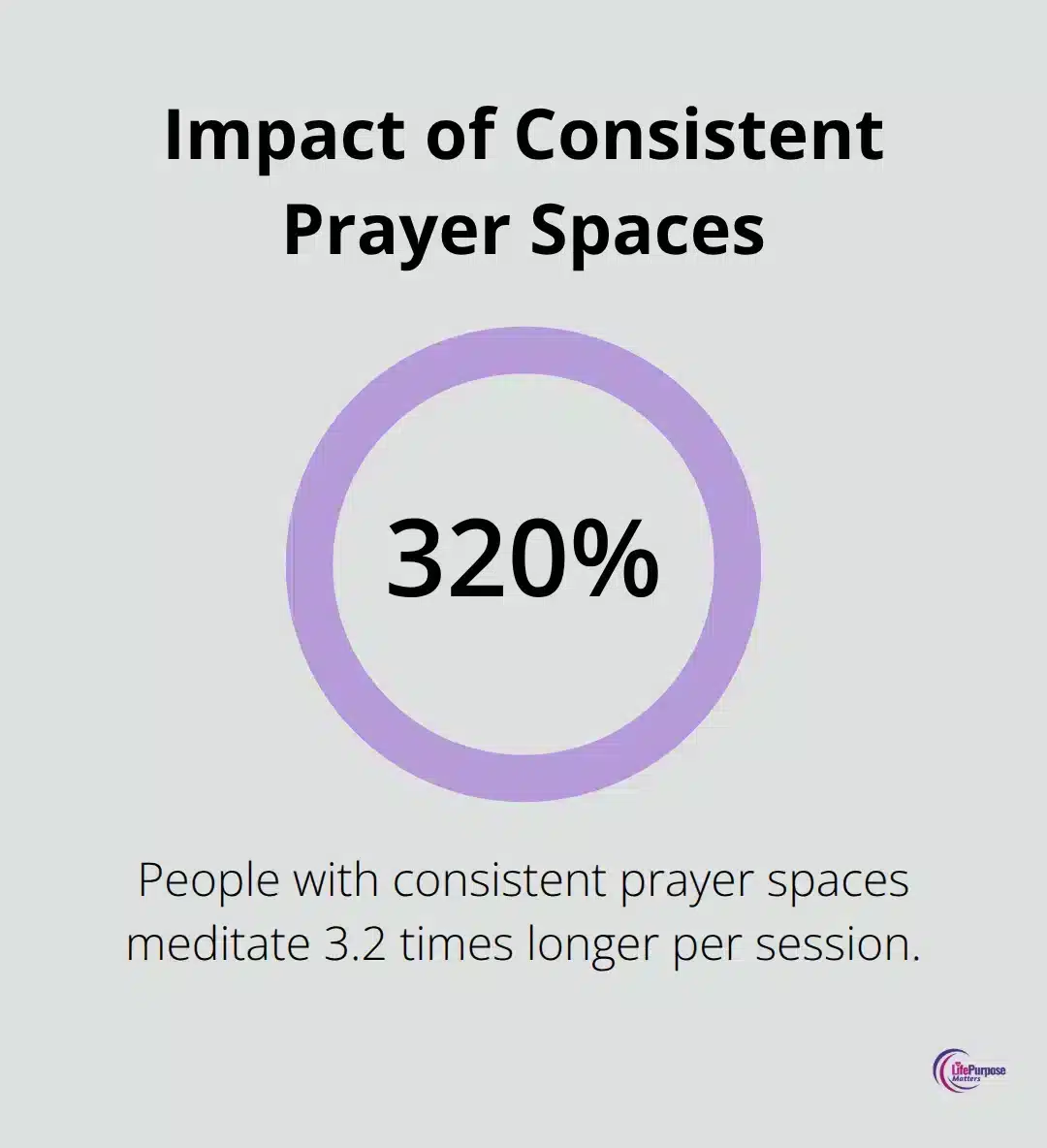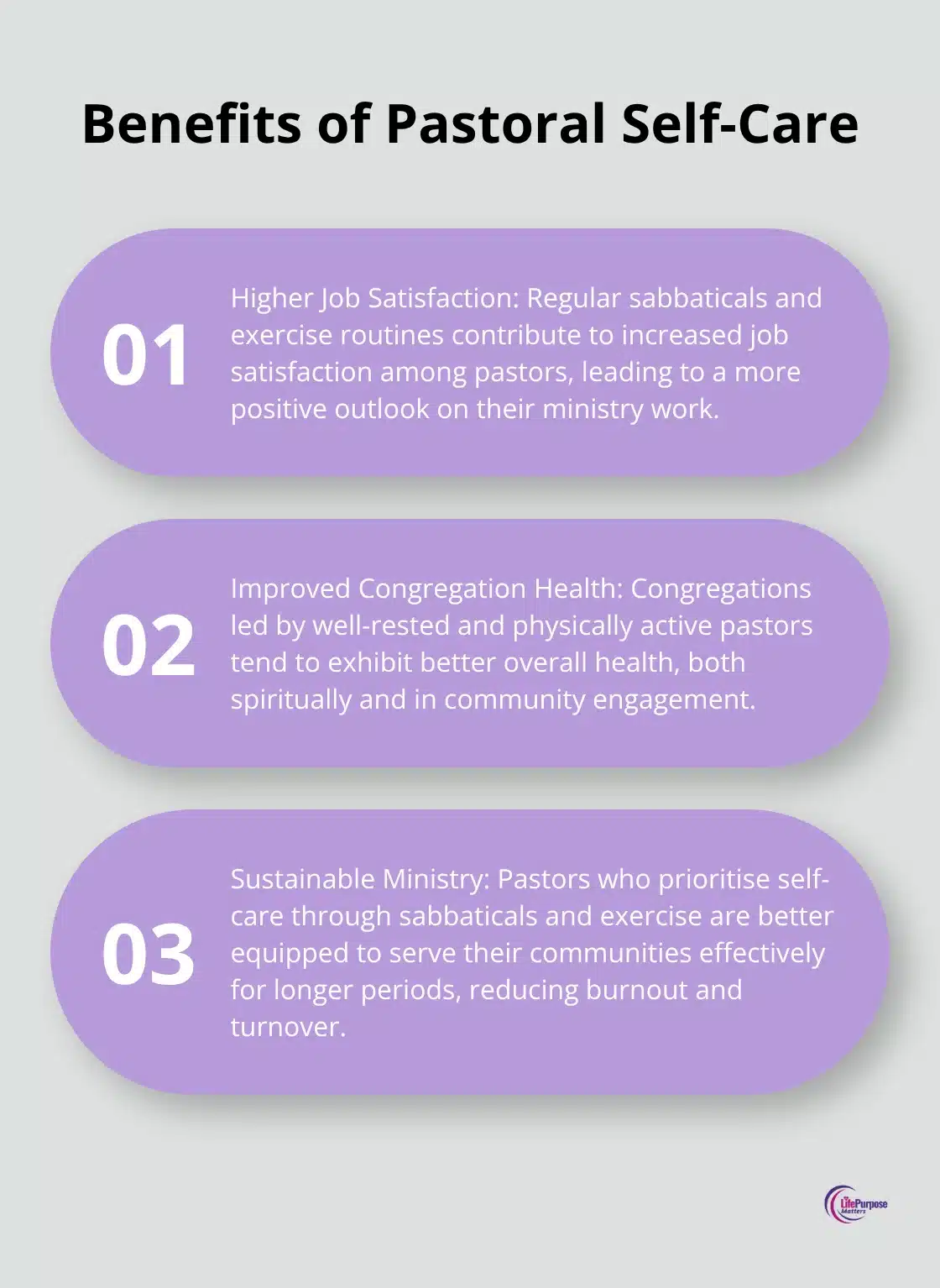If you’re anything like me, you’ve probably felt guilty about taking time for yourself, especially when there’s so much ministry work to do. But what if I told you that Christian self-care isn’t selfish at all? Last month, September was Self-Care month. If you missed what we got up to, check out my post about how to prioritise self-care.
Table of Contents
ToggleHere at Life Purpose Matters, we believe God actually designed us to rest and recharge. When we care for ourselves properly, we become better equipped to serve others and live out our faith with genuine joy and energy.
What Does Scripture Say About Self-Care
The Bible makes God’s intentions for rest crystal clear from the very beginning. In Genesis 2:2-3, God himself rested on the seventh day and made it holy. He established a divine pattern that wasn’t just a suggestion but a commandment. Exodus 20:8-11 doesn’t mince words about Sabbath rest, and psychological well-being is a very high priority for workers themselves according to the American Psychological Association. When Jesus told his disciples in Mark 6:31 to come away to a quiet place and rest, he wasn’t soft – he was strategic about sustainable ministry.
Jesus Modelled Strategic Withdrawal
Jesus consistently withdrew from crowds for prayer and solitude, as Mark 1:35 and Luke 5:16 document. This wasn’t weakness or selfishness – it was necessary spiritual maintenance. Research has suggested that regular meditation practice can help by changing how the brain responds to stress and anxiety. Jesus understood that spiritual leadership requires intentional recharge time, and he practised what he preached. He prioritised alone time with the Father before major decisions and after intense ministry periods.
Your Body Is God’s Investment
First Corinthians 6:19-20 states your body is the temple of the Holy Spirit, purchased at the ultimate price. This means you dishonour that investment when you neglect your physical and mental health. The Centers for Disease Control reports that chronic stress contributes to six leading causes of death, yet many Christians wear exhaustion like a badge of honour. God invested everything in you through Christ’s sacrifice and treating your body carelessly shows poor stewardship. Taking care of your physical health through proper nutrition, exercise, and rest isn’t vanity – it’s obedience to biblical principles.

The Sabbath Principle Still Applies
Modern Christians often dismiss Sabbath rest as Old Testament legalism, but Jesus clarified that “the Sabbath was made for man, not man for the Sabbath” (Mark 2:27). He emphasised rest as a gift, not a burden. Neuroscience research from Stanford University shows that regular rest periods improve cognitive function by 40% and reduce decision fatigue. The Sabbath principle teaches us that consistent rest isn’t optional – it’s part of God’s design for human flourishing.
Now that we’ve established the biblical foundation for self-care, let’s explore how to put these principles into practice through specific strategies that honour both your faith and your well-being.
How Do You Build Faith-Centred Self-Care Habits
A dedicated prayer corner transforms your daily spiritual practice from rushed moments to intentional encounters with God. Choose a quiet corner with minimal distractions, add a comfortable chair or cushion, and keep your Bible and journal within reach. Consider soft lighting or a small cross for visual focus. The Mayo Clinic reports that people who maintain consistent prayer spaces practise meditation 3.2 times longer per session than those without designated areas.

Set Ministry Boundaries That Actually Work
Ministry burnout affects pastors significantly, with 42% having considered quitting full-time ministry within the past year according to Barna Group research. Most church leaders resist boundaries because they fear they’ll appear uncommitted. Start with time boundaries and designate two complete evenings per week as family time with no ministry calls or emails. Establish communication boundaries and set specific hours for non-emergency church matters (use an auto-responder that clearly states your availability). Physical boundaries matter too – create a separate workspace for ministry tasks and avoid church work in your bedroom or family areas. The Hartford Institute for Religion Research found that pastors who maintain clear boundaries report 45% less stress and serve their congregations 2.3 years longer on average.
Transform Daily Wellness Through Faith-Based Practices
Replace your morning social media scroll with a 10-minute gratitude prayer that focuses on three specific blessings from the previous day. Studies from UC Davis show that people who practise daily gratitude experience 25% better sleep quality and 13% lower cortisol levels. Incorporate prayer walks and combine physical exercise with intercessory prayer for your community, family, or church members. The American Heart Association confirms that 30 minutes of daily walking reduces heart disease risk by 35%, while the spiritual component adds mental clarity and emotional stability. Consider listening to Christian podcasts during your walks to deepen your spiritual growth.
Practise Digital Sabbaths for Spiritual Reset
Schedule weekly digital sabbaths from Friday evening to Saturday evening and turn off smartphones and computers to focus on face-to-face relationships and spiritual reflection. This practise creates space for deeper connection with God and family without the constant pull of notifications and social media comparisons. Many Christians find this weekly rhythm helps them approach Sunday worship with greater focus and anticipation.
These practical strategies work best when you address the internal barriers that often sabotage our self-care efforts.
Is Self-Care Really Selfish
If you’ve grown up in Christian circles, you’ve probably heard the message loud and clear: put others first, deny yourself, and serve sacrificially. Many active church members report guilt when they prioritise their own needs over ministry demands. This guilt stems from a fundamental misunderstanding of what self-care actually means versus what our culture has twisted it into.
The Difference Between Self-Care and Self-Indulgence
True self-care focuses on your capacity to serve God and others effectively, while self-indulgence prioritises immediate pleasure over long-term stewardship. Self-care means you get adequate sleep so you can think clearly during important conversations, eat nutritious meals to maintain energy for ministry work, and set boundaries to prevent burnout that would force you to step away from service entirely.
Self-indulgence looks different. You spend money you don’t have on luxury items, avoid all uncomfortable conversations, or constantly choose entertainment over responsibility. Research shows that people who practise genuine self-care tend to serve longer in volunteer roles than those who ignore their basic needs.
How Proper Self-Care Multiplies Your Ministry Impact
When you maintain your physical, emotional, and spiritual health, you become a more effective servant leader rather than a liability to your community. Pastors who take regular sabbaticals and maintain exercise routines report higher job satisfaction and lead congregations with better overall health.

Why God Wants You Healthy and Whole
Self-care isn’t about selfishness or laziness – it’s about sustainable stewardship of the gifts God has given you. When you ignore your basic needs, you essentially tell God that his investment in you doesn’t matter enough to maintain properly. The most loving thing you can do for your family, church, and community is to show up as your healthiest, most capable self rather than a depleted shell that runs on fumes and guilt.
Final Thoughts
Christian self-care isn’t a luxury or afterthought – it’s an integral part of God’s design for your life. When you prioritise your physical, emotional, and spiritual health, you honour the investment Christ made in you and position yourself for sustainable ministry. Start your faith-centred self-care journey with one small step: establish a consistent bedtime that allows for adequate rest, create a five-minute morning prayer routine, or designate one evening per week as family time without ministry interruptions.
The balance between service to others and personal renewal isn’t a perfect equation you solve once. It’s an ongoing rhythm that requires regular adjustment based on your current season of life and ministry demands. Some weeks will require more intensive service, while others call for deeper rest and reflection (just as Jesus modelled throughout his earthly ministry).
We at Life Purpose Matters understand that your God-given purpose requires both passion and sustainability. When you care for yourself properly, you don’t step away from your calling – you prepare to fulfil it more effectively for years to come. Your community needs the best version of you, not the most exhausted version.

